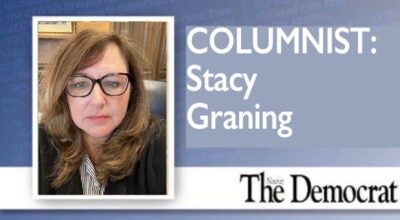Are officials picking winners, losers?
Published 2:30 am Thursday, February 16, 2017
Dear fellow taxpayers:
Our elected public officials previously approved tax increment financing (TIF) in downtown Natchez. Critics describe TIFs as creators of false markets, with public officials picking winners and losers.
An example of a TIF project is the Grand Hotel, located in the most prominent portion of Natchez, the bluff. TIFs were originally developed to promote development or redevelopment of blighted and deteriorated areas of a city. Unless one considers the bluff area of Natchez and all of downtown Natchez as blighted, it is first hard to understand how a TIF project was ever proposed or approved at the location of the Grand Hotel, on top of the most coveted property in our community, recognized as such centuries ago.
While it is true that TIFs have sometimes been used by cities to attract new businesses, downtown redevelopment and retention or expansion of existing businesses, it is clearly a process fraught with potential for political abuse.
At bottom, the TIF Grand Hotel benefits from taxpayer subsidies of its debt through the 3 percent lodging tourism tax and 1.5 percent restaurant tourism tax collected by other hotels, bed and breakfasts and restaurants. That’s right — the Grand Hotel benefits by way of subsidies from community investor-supported businesses collectively employing a significant percentage of our local hospitality workers.
In 2014, public officials discussed increasing tourism taxes to a 4 percent lodging tax and a 2 percent restaurant tax, presumably to service tourism-related debt, of which there is plenty.
In 2015, Natchez hotels, bed and breakfasts, restaurants, caterers and bars that sell food — 300 or more of them — complained they were not getting leads through the existing electronic system for convention business on a basis consistent with the increased bookings at the Natchez Convention Center. Those people had reason to believe that the TIF hotel received favored treatment for convention bookings. If this is true, non-TIF Natchez businesses are suffering a double-whammy at the hands of our elected public officials. Hospitality workers, from kitchen, housekeeping to management, are all are adversely affected when their employers are not given a fair shake or opportunity to book a room or cater a meal. Hopefully, our elected public officials recognize that their hardworking hospitality worker voting constituents depend on their jobs with predominantly non-TIF subsidized businesses. The recipient of the TIF is a Warren Reuther company, and the Natchez Convention Center is managed by a Warren Reuther company selected by the city’s elected officials. Before additional TIFs are proposed or approved, while our public officials talk about raising taxes, taxpayers deserve full and complete disclosure about each TIF district approved or to be proposed, as well as the city’s analysis of individual properties in each TIF district, their expected contribution toward city revenue growth, and the city’s feasibility analysis (if any) for approving TIFs. The city also needs to analyze, with input from the community, including non-TIF competitors, the real impact of the existing TIFs on city revenues. For example, why has debt service languished on the convention center, while Reuther has done well enough with the Grand Hotel to announce a new acquisition to be converted to a luxury hotel?
Communities much more progressive than this tired lady are onto this, and taxpayers in Natchez need to know whether TIFs in downtown Natchez will yield the broad economic results the city needs. Moreover, the local folks need proof that the playing field is level, and built for the greater good of all citizens of all backgrounds and not for the purpose of fattening the purse of a few, at taxpayer expense. Developers seeking government subsidies like TIFs must be willing to actually divulge information, not just talk the game in public meetings, and our elected officials need to do their jobs for more than meeting times and perform solid due diligence and analysis of the developer’s numbers, looking not only at market benchmarks but also at hard numbers and data from other projects undertaken by the developer and its competitors. It is so easy to be misled by a pied piper, or fooled by a Trojan horse flashing a few power point slides.
If TIFs can be defended, it is time for our elected officials to concentrate on the feasibility of TIFs in blighted areas of Natchez that realistically have a chance to drive development or redevelopment and raise prosperity for all, rather than a TIF that appears at this point to have benefitted only one company, while the vast majority of hospitality businesses are still trying to eke out a living.
If you are interested in this issue give me a call at 601-445-4148.
Paul Benoist is a Natchez resident.





